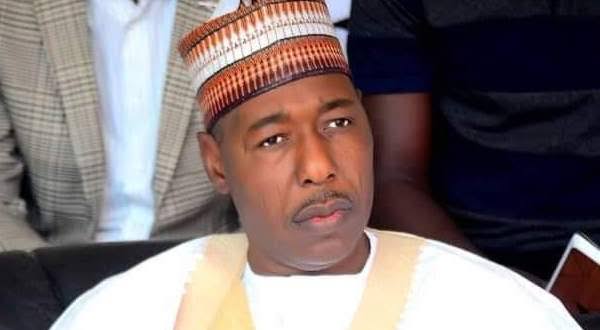Zulum assesses Malam-Fatori again as resettlement starts before Ramadan
Borno State Governor, Babagana Umara Zulum, on Sunday, undertook a humanitarian assessment of Malam-Fatori, headquarters of Abadam Local Government Area in northern Borno on the fringes of Lake Chad for the fourth time. Zulum had visited Malam-Fatori in February 2020, July 2021 and October 2021, before his latest visit on the 6th of March, 2022. […]

Governor Babagana Zulum of Borno State
Borno State Governor, Babagana Umara Zulum, on Sunday, undertook a humanitarian assessment of Malam-Fatori, headquarters of Abadam Local Government Area in northern Borno on the fringes of Lake Chad for the fourth time.
Zulum had visited Malam-Fatori in February 2020, July 2021 and October 2021, before his latest visit on the 6th of March, 2022.
- Fresh concern as Niger IDPs seek refuge at hydropower station facilities
- Man rapes wife’s 11-year-old cousin in Ogun
The latest visit was for the governor to finally re-assess resettlement works he had assigned a committee to do.
The governor expressed satisfaction with the resettlement committee’s work, preparing for the return of IDPs and refugees who stayed in Bosso and Diffa border towns in Niger Republic since 2014, after fleeing attacks from communities in some of the 10 local government areas located in northern Borno.
“500 households will, insha Allah, arrive before Ramadan fast. This is the right time to resettle them back to their ancestral homes in a safe and dignified manner before the rainy season”, Zulum said.
The governor explained that each of the returnees will be supported with 100,000 naira cash as part of a participatory rebuilding approach.
While in Malam-Fatori, Governor Zulum approved 20 Buffalo patrol vehicles to support surveillance and fighting against insurgents by the Nigerian military and volunteers made up of youths in the ‘civilian JTF’, hunters and vigilantes.
